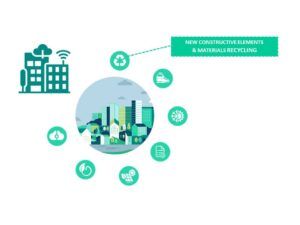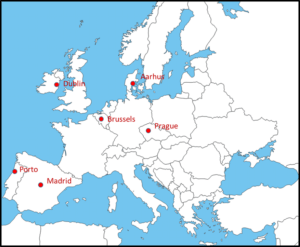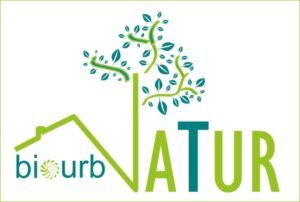Política de proveedores
Directrices para la evaluación, selección, seguimiento de desempeño y reevaluación de los proveedores externos de la Fundación CIDAUT
1. Objeto
El presente documento se establece para informar a los proveedores de la Fundación CIDAUT de las directrices generales que se siguen para la evaluación, selección, seguimiento de desempeño y reevaluación de los proveedores externos.
2. Ámbito de aplicación
Conforme a los requisitos de la ISO 9001:2015 el presente documento se aplica a los proveedores externos de la Fundación CIDAUT que suministren productos y servicios que puedan afectar de manera adversa a la capacidad de entregar los resultados de los proyectos, servicios tecnológicos y ensayos que desarrolla la Fundación CIDAUT. Se detalla a continuación un listado no exhaustivo de procesos, productos y servicios a los que le aplicaría estas directrices:
Servicios y/o procesos de:
- ensayos, ensayos de aptitud, calibraciones o muestreo
- diseño
- fabricación de piezas, moldes, utillajes, componentes eléctricos y/o electrónicos, elementos o conjuntos necesarias para la fabricación de prototipos, máquinas o cualquiera elemento que se vaya entregar al cliente o sobre el cual se vayan a realizar ensayos o pruebas que constituirán los resultados a entregar al cliente
- análisis, evaluación, auditoría o asesoría técnica cuyas conclusiones y/o resultados se integrarán en los resultados a entregar al cliente
- desarrollo instalaciones específicas para el desarrollo de proyectos, servicios tecnológicos o ensayos
- servicios soporte clave que pueden condicionar el resultado de los proyectos, servicios tecnológicos o ensayos: mantenimiento de instalaciones y equipos, administración y mantenimiento de software, etc.
Productos
- patrones y equipos auxiliares para la calibración / verificación de equipos de medición y seguimiento
- elementos y materiales de referencia
- equipos de medición y seguimiento
- materias primas que deben cumplir requisitos específicos del Proyecto, Servicio Tecnológico o Ensayo
- materiales, reactivos, aditivos, etc¿ necesarios para desarrollo de un nuevo material que será resultado del proyecto o servicio tecnológico o sobre los cuales se realizarán los ensayos o pruebas que constituirán los salidas/ resultados del proyecto o servicio tecnológico.
- consumibles que deben cumplir requisitos específicos para el correcto funcionamiento de equipo / instalación clave para el desarrollo del proyecto, servicio tecnológico o ensayo
- equipos e instalaciones clave para el desarrollo del proyecto, servicio tecnológico o ensayo
- software que pueden determinar los resultados del proyecto, servicio tecnológico o ensayo (CAD/CAE/CAM)
3. Desarrollo
3.1. Evaluación y Selección de Proveedores
El Responsable de la Compra de la Fundación establece los criterios en base a los cuales se realiza la evaluación y selección con el fin de garantizar que el proveedor seleccionado suministre los productos y servicios conforme a los requisitos necesarios. Los criterios de selección son una combinación de los siguientes dependiendo del tipo de producto / servicio:
- Capacidad para cumplir requisitos exigibles tanto legales como requisitos del cliente
- Adaptación a la necesidad específica: Para productos / servicios complejos la propuesta del proveedor que mejor cumpla con la necesidad
- Capacidad Técnica: El proveedor dispone de los medios materiales y humanos adecuados
- Acreditaciones ENAC: El proveedor está acreditado por ENAC para el desarrollo de calibraciones, ensayos, etc.
- Certificaciones: El proveedor tiene certificación ISO 9001 vigente y dentro de su alcance están los productos y/o servicios objeto de la necesidad
- Proveedor recomendado o establecido por el Cliente
- Experiencia previa: Proveedor en otros departamentos o proyectos
- Reconocimiento del mercado
- Referencias de clientes, competidores, etc.
- Riesgo y garantías: Nivel de riesgo que asume el proveedor y/o garantías que ofrece
- Capacidad Financiera: Para grandes compras
- Capacidad de Suministro
- Flexibilidad ante los cambios
- Accesibilidad
- Capacidad de cumplimiento de plazos
- Precio
- Forma de pago
3.2. Seguimiento del desempeño y reevaluación de los proveedores.
Para garantizar que losproveedores externos controlados siguen suministrando conforme a los requisitos establecidos los proveedores son sometidos a un seguimiento y control periódico. Atendiendo al tipo de proveedor se establece:
| Tipo proveedor | Seguimiento | Reevaluación |
| Regular: proveedores habituales | X | X |
| De proyecto: proveedores específicos para un proyecto determinado | X | No aplica |
| Ocasional: proveedores de una única compra | No aplica | No aplica |
Seguimiento
El seguimiento de de los proveedores externos se realiza de forma continua:
- Comprobando el mantenimiento de la certificación ISO 9001 o acreditación ENAC que sirvió de base para la aprobación. En caso de pérdida se le podría retirar la aprobación.
- Comprobando el cumplimiento de los acuerdos comerciales
- Revisión de la calidad de las compras realizadas. Se hace un seguimiento de las anomalías atribuibles al proveedor. Cuando una incidencia origina una reclamación del cliente o afecte significativamente las salidas o resultado del proyecto, servicio tecnológico o ensayo se procede abrir una No conformidad. Cuando la respuesta del proveedor no es adecuada o cuando la gravedad de la anomalía hace que la Fundación CIDAUT pierda la confianza en el proveedor, se procede a retirar la aprobación.
- Auditorías
- Revisiones de la calidad del servicio
- Visitas al proveedor
- Inspecciones de producto
- Seguimiento de indicadores
- Reuniones con usuarios del servicio
Reevaluación
Los proveedores regulares son revaluados periódicamente. Para ello se revisa:
- los criterios por los que inicialmente fueron aprobados
- el mantenimiento de la certificación ISO 9001 o acreditación ENAC si es que fueron elementos determinantes en la aprobación del proveedor
- el cumplimiento de los acuerdos comerciales
- el histórico de incidencias y seguimientos realizados
- el nivel de servicio del proveedor teniendo en cuenta especialmente las solicitudes no atendidas, los plazos de respuesta y la accesibilidad
- la variaciones de precio y su comparativa con otros competidores





